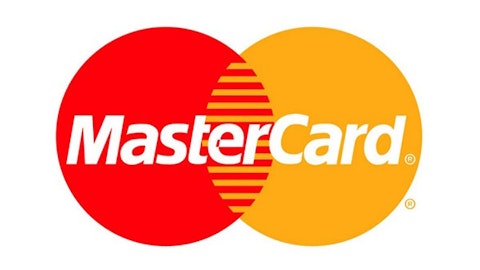There’s no credit risk. But there could be banking risk.
Visa Inc (NYSE:V) processes transactions; Lending to credit card customers and the risk that entails is done entirely by banks. But Visa still takes on a form of banking risk:
We indemnify issuers and acquirers [banks] for any settlement loss suffered due to the failure of another issuer or acquirer to fund its daily settlement obligations … This indemnification creates settlement risk for us due to the difference in timing between the date of a payment transaction and the date of subsequent settlement … Concurrent settlement failures involving more than one of our largest clients or several of our smaller clients may exceed our available financial resources, as could systemic operational failures lasting more than a single day … In addition, even if we have sufficient liquidity to cover a settlement failure, we may be unable to recover the amount of such payment. This could expose us to significant losses, materially and adversely affecting our financial condition, results of operations and cash flow.
I don’t see this is as a major risk, but it’s a reminder of what investors are dealing with. Visa Inc (NYSE:V) is a technology company at heart, but one that relies on banks. In times of stress, the decisions of the latter may prevail.
Crackdown
Visa Inc (NYSE:V) is an incredible business with high margins and a wide moat. That’s great news for shareholders. But another institution — regulators — tends to view the company’s strength as consumers’ weakness. Visa’s annual report writes:
We have historically implemented policies that prohibit merchants from charging higher prices to consumers who pay using Visa instead of other means. Some local jurisdictions have taken steps to limit these no-surcharge rules. For example, the Reserve Bank of Australia enacted a regulation that prohibited us from enforcing our no-surcharge policy and effectively allowed merchants to impose discretionary surcharges on Visa transactions without limitation. Recently, the Reserve Bank of Australia, while reinforcing its position that surcharging is appropriate in that market, has taken steps that would allow us to limit the level of surcharges that merchants can impose. Additionally, in the United States there are ten states that prohibit the use of the surcharge as an anti-consumer practice through their state legislatures.
The article 5 Things I Learned Reading Visa’s Annual Report originally appeared on Fool.com.
Fool contributor Morgan Housel has no position in any stocks mentioned. The Motley Fool recommends American Express Company (NYSE:AXP), Mastercard Inc (NYSE:MA), and Visa Inc (NYSE:V). The Motley Fool owns shares of MasterCard.
Copyright © 1995 – 2013 The Motley Fool, LLC. All rights reserved. The Motley Fool has a disclosure policy.





